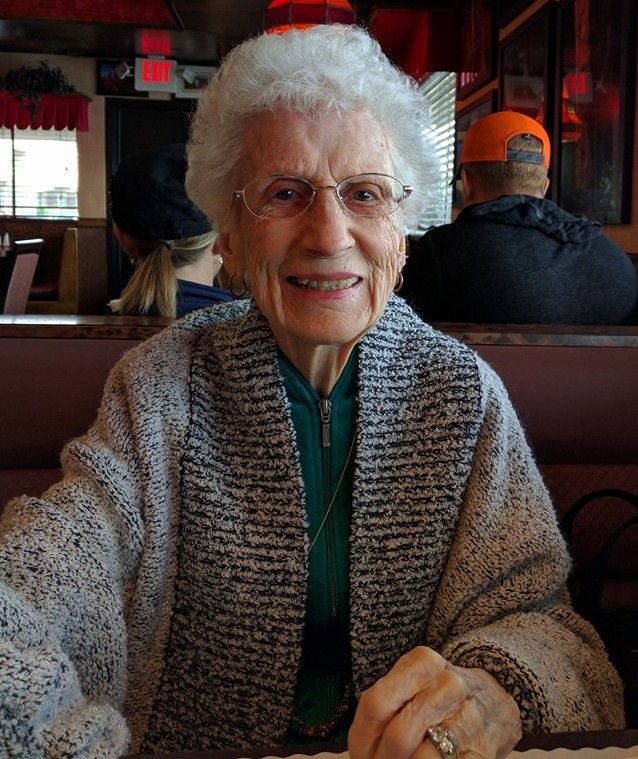Salvation and Resurrection

June 4, 2022
Timothy 4:1-5 and John 11:17-27
Introduction
When Grandma Drew learned that I had received a call to preach the Word, I distinctly remember what she told me: “Chris, just preach salvation. Just preach salvation.” At the time, in my ignorance, I thought this a quaint thing to say. Even naive. Only later did I understand that she may well had been thinking of one of the texts I read this morning, 2 Timothy 4:1-5, a text that contains Paul's most powerful and explicit instruction regarding the chief duty of the minister. This epistle was likely one of the last, if not the last letter he wrote to his beloved brother and fellow minister, Timothy, and it may have been his last letter he wrote, period. As you read the letter, it is clear that Paul understands that his life is rapidly approaching its end. And so he wants to urgently remind the young man of the importance of his call and one of the most important priorities of that call: Preaching the Word of God. In the last verse of the previous chapter, Paul reminded Timothy:
2 Timothy 4:1–5 [1] I charge you in the presence of God and of Christ Jesus, who is to judge the living and the dead, and by his appearing and his kingdom: [2] preach the word; be ready in season and out of season; reprove, rebuke, and exhort, with complete patience and teaching. [3] For the time is coming when people will not endure sound teaching, but having itching ears they will accumulate for themselves teachers to suit their own passions, [4] and will turn away from listening to the truth and wander off into myths. [5] As for you, always be sober-minded, endure suffering, do the work of an evangelist, fulfill your ministry. (ESV)
This word consists of all the Scriptures, the whole counsel of God. Every word of it is from God, and so all of it must be good, and must be helpful to us. The Word is God's special revelation of Himself, and tells us everything we need to know about Him and how we are to live. Just a Christ upholds the universe by the Word of His power, God upholds His church by means of His Word read and proclaimed, as it is now in this funeral, but especially in the gathering of the saints each and every Lord’s Day. It is the Word of God that brings conviction of sin. It is the Word of God that raises the spiritually dead to life and brings the fruit of repentance. It is the Word of God that sanctifies the believer until that day when he or she leaves this mortal life to be perfectly glorified by the one Word who became flesh and dwelt among us. It is the Word of God that raises the dead. It is the Word of God that brings eternal life.
Salvation from God’s wrath for sin comes by means of the preached Word. My charge is to preach salvation. Which means that I must preach to you Jesus Christ and Him crucified and risen from the dead. And it means that I should repent of the attitude I had when Grandma first gave her exhortation to “preach salvation.” She was 50 years older than me, and she knew more about the ministry of Christ entailed than I did at that time, fresh out of seminary.
The Resurrection and the Life
And this brings me to the other text I want to preach today: John 11. You may be familiar with the account. Jesus had a good friend named Lazarus. Lazarus had two sisters, Mary and Martha. They lived in Bethany. A report came to Jesus’ ears that Lazarus was ill, and the illness was apparently of such severity that it was imperative that Jesus come quickly to intervene.
John records this extraordinary fact in the text: He writes that Jesus loved Lazarus and Mary and Martha. So when he received the news about Lazarus’ illness, out of love for them he stayed where he was for two days! No why on earth would he do that? Just moments before, he said:
[John 11:4] But when Jesus heard it he said,“This illness does not lead to death. It is for the glory of God, so that the Son of God may be glorified through it.”
And later, when it is clear that the disciples are confused by what Jesus is saying, he clarifies the situation this way:
[14] Then Jesus told them plainly, “Lazarus has died, [15] and for your sake I am glad that I was not there, so that you may believe.
Let’s be absolutely clear what is happening here. Jesus has a friend named Lazarus whom he loves. He loves his family as well. He learns that his beloved friend is seriously ill. Rather than do what everyone might expect, which is to make haste to heal Lazarus, Jesus deliberately waits, knowing that the wait will result in Lazarus’ death. And he does this so that God will be glorified, and so that the Son of Man may be glorified in it, which is to say that Jesus himself would be glorified in it, and so that his disciples would believe.
Those reading the text for the first time we might find this course of action oddly selfish. Jesus is going to let this man die, in part, so that he himself will be glorified. How is Jesus going to get glory from visiting a dead man? About the only thing that can be done here from a human perspective is to console the dead man’s sisters.
When Jesus finally arrives in Bethany, Lazarus has already been dead for four days. John includes this detail specifically to inform us that by now, decay would have clearly set it. Indeed, this is a concern for Martha, when Jesus later orders the tomb to be opened. She says, “Lord, by this time there will be an odor, for he has been dead four days.” As he comes to the town, a crowd from nearby Jerusalem has gathered in sympathy to the women who have been left without their brother. Martha receives the news that Jesus is approaching. She leaves the house and comes to Jesus. Mary stays behind. Martha addresses Jesus with honor, “Lord, if you had been here, my brother would not have died.” Martha is totally confident that Jesus could have healed her brother. It is this certainty that gives us a sense there is, behind her statement is a complaint. Lord, I know you could have saved by brother. Why did you not come right away, when he was still alive, when there was still hope? You have healed others. We know you could have done it, but you didn’t come the when we called. Even so, Martha knows that Jesus can perhaps still do something to help. So she adds, “But even now I know that whatever you ask from God, God will give you.”
Jesus then offers a precious statement: “Your brother will rise again.” He affirms what was, in fact, a widely held belief of many Jews, including Martha, that when the last day comes, there would be a general resurrection from the dead. Martha, not understanding the immediacy of Jesus' statement, replies, "I know that he will rise again in the resurrection on the last day.”
But now Jesus does something amazing. He reveals how the resurrection of the dead will take place. It will take place through the person and power of Jesus.
[25] Jesus said to her, “I am the resurrection and the life. Whoever believes in me, though he die, yet shall he live, [26] and everyone who lives and believes in me shall never die.” (ESV)
Puritan commentator Matthew Henry writes:
The power of Christ, his sovereign power: I am the resurrection and the life, the fountain of life, and the head and author of the resurrection. Martha believed that at his prayer God would give any thing, but he would have her know that by his word he could work anything. Martha believed a resurrection at the last day; Christ tells her that he had that power lodged in his own hand, that the dead were to hear his voice (John 5:25), whence it was easy to infer, He that could raise a world of men that had been dead many ages could doubtless raise one man that had been dead but four days.
And then Henry adds this note:
It is an unspeakable comfort to all good Christians that Jesus Christ is the resurrection and the life, and will be so to them. Resurrection is a return to life; Christ is the author of that return, and of that life to which it is a return. We look for the resurrection of the dead and the life of the world to come, and Christ is both; the author and principle of both, and the ground of our hope of both.
After showing Martha that he is the resurrection and the life, Jesus asks Martha:
John 11:26 [26] "Do you believe this?” (ESV)
That is the question also before you, beloved. Jesus raised Lazarus from the dead by the Word of His power. He is the resurrection and the life. He is the very incarnation of God. Truly God. Truly man. He is the one who condescended to come down from glory to redeem those who are haters and enemies of God, those who actively deny his existence, who reject and defy his holy law. For all those who repent of their sin and confess Him as Lord and Savior, he washes away the stain of sin an iniquity and grants a new life of love and peace in the Holy Spirit. The crucified Son of Man is foolishness to the dead, but for those whom God has chosen, Christ the power of God and the wisdom of God. The call of salvation is to repent, that means to reject sin and turn away from it, and to turn to Jesus Christ, and trust his perfect live and sacrificial death for the forgiveness of your sins.
One of the joys of the Christian ministry is preaching the funeral of a departed saint, that is, one who was able to say, with Martha, “Yes, Lord; I believe that you are the Christ, the Son of God, who is coming into the world.” Grandma Drew was faithful. She had a passion for Christ that was reflected in her roles as a wife, a mother, a grandmother, a sister, and a servant of others. For her life we give all thanks and praise to the Lord, as we look for His return. And we look forward with hope for the day when we will join with Carrie and all the departed saints who have preceded us in the eternal worship of God, our creator and our savior.
Amen
Given by Christopher D. Drew
at Cheyenne Memorial Gardens
Cheyenne, Wyoming
Copyright © 2022
